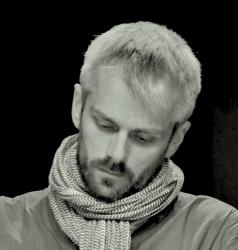
During the latest middle-ages, the era I grew up in, the library at my parents’ home included handbooks for interpretations of dreams. Themes were listed alphabetically and the book would do its best to decipher what your dream was trying to tell you about the future. The only constant that I remember in all these manuals is that shit represented money. The more shit you dream, the more money will happen to you: you might gain it or lose it, borrow it, owe it or just see it, but all the books agreed that if you dream shit, there will be money.
By reverse deduction, we might come to the conclusion that, collectively, the inhabitants of Iceland must have been dreaming about a lot of money lately: for two consecutive weeks in July, every second news item, opinion piece and Facebook post was about shit. After a few weeks of euphemistic reluctance — local variations on phrases such as “human waste” — all media dived straight into it, using the unambiguous, colloquial and sticky “kúkur” without restraint.
Some of the kúkur in question may have been yours. To summarise, it seems that during the country’s recent tourist boom, the need for toilet facilities in rural areas was either underestimated or, what seems more likely, not estimated at all. The fundamental metabolism of mammals did not change to accommodate this oversight, meaning that travellers have been doing what they need to do regardless.
A week or two of headlines included: “Tourists kúked in the garden: “These people are a so-called shitty pack””; “Says the tourists did not kúk in the garden”; “Important to impose limits on travellers: “A million more pieces of kúkur””; “A million kúkar in a field”; “Kúking is forbidden here”; “Kúking all over the place”; “A state of emergency?”; “No one approves of this abomination”; “Free defecating better than paid”; “Says dozens of tourists defecated and urinated …”; “Kúked in the lava field and set the moss on fire”; and so, breathlessly, on.
In the media’s defense, high summer in Iceland is known as “cucumber season” since traditionally the only newsworthy material during the season is various crops of vegetables. Alþingi goes on holiday, as do more seasoned journalists, while interns and temporary staff take over, nowadays all aiming at setting new click-records.
As kúkurgate exploded, filling all major media with coverage, eye-witness accounts and, eventually, direct photographic evidence of digestion and its soil-enhancing produce in Icelandic nature, the minister responsible for matters involving the tourist industry finally commented to absolve herself by describing the problem as essentially “behavioral” and “pedagogic”: staff in the tourist industry must solve the problem along with their customers, she said, implying, it seems, that bus drivers, guides and hosts must educate foreigners about the use of this clever invention we call the water toilet.
This gesture of implied collective shaming was not backed by the presentation of any facts, no statistics on toilet facilities in tourist-heavy rural areas, let alone the sort of analysis which presumably exists in relevant academic fields and professions. The only deduction behind the minister’s conclusion seems to be: this is a problem. I don’t have a problem. Therefore, this is someone else’s problem. In other words: talk to the hand.
Which hand? In this country, there is only one hand to speak to: the dandy and well-washed invisible hand of the market. It does not wipe asses. Sewage systems, the foundation of civilisation since Rome and beyond, are a matter of collective interest and, thereby, none of the hand’s. Just be patient, though. The revolution will be scheduled as soon as its managers come back from their midsummer hike. Meanwhile, evidently, there will be shit.
Buy subscriptions, t-shirts and more from our shop right here!
















